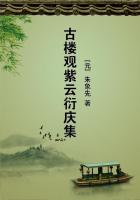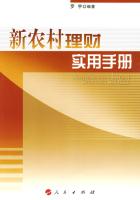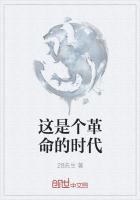Even universities have much of this sort of cant.In literature, for instance, whether ancient or modern, English or foreign, little that is vital is commonly imparted.Compelled by his position to teach s omething to large and diverse classes, the teacher is led to fix upon certain matters梥uch as grammar, metres, or the biographies of the authors梬hose definiteness suits them for the didac--tic purpose, and drill them into the student; while the real thing, the sentiments that are the soul of literature, are not communicated.If the teacher himself feels them, which is often the case, the fact that they cannot be reduced to formulas and tested by examinations discourages him from dwelling upon them.
In like manner our whole system of commerce and industry is formal in the sense that it is a vast machine grinding on and on in a blind way which is often destructive of the human nature for whose service it exists.Mammon梐s in the painting by Watts梚s not a fiend, I wilfully crushing the woman's form that lies under his hand, but only a somewhat hardened man of the world, looking in another direction and preoccupied with the conduct of business upon business principles.
A curious instance of the same sort of thing is the stereotyping of language by the cheap press and the habit of hasty reading.The newspapers are called upon to give a maximum of commonplace information for a minimum of attention, and in doing this are led to adopt a small standard vocabulary and a uniform arrangement of words and sentences.All that requires fresh thought, either from reader or writer, is avoided to the greater comfort of both.The telegraph plays a considerable part in this, and an observer familiar with its technique points out how it puts a premium on long but unmistakable words, on conventional phrases (for which the operators have brief signs) and on a sentence structure so obvious that it cannot be upset by mistakes in punctuation.
In this way our newspapers, and the magazines and books that partake of their character, are the seat of a conventionalism perhaps as destructive of the spirit of literature as ecclesiasticism is of the spirit of Christianity.
The apparent opposite of formalism, but in reality closely akin to it, is disorganization or disintegration, often, though inaccurately, called " individualism." One is mechanism supreme, the other mechanism going to pieces; and both are in contrast to that harmony between human nature and its instruments which is desirable.
In this state of things general order and discipline are lacking.Though there may be praiseworthy persons and activities, society as a whole wants unity and rationality, like a picture which is good in details but does not make a pleasing composition.Individuals and special groups appear to be working too much at cross purposes; there is a "reciprocal struggle of discordant powers" but the " harmony of the universe " cloes not emerge.
As good actors do not always make a good troupe nor brave soldiers a good army, so a nation or a historical epoch?say Italy in the Renaissance梞ay be prolific in distinguished persons and scattered achievements but somewhat futile and chaotic as a system.
Disorganization appears in the individual as a mind without cogent and abiding allegiance to a whole, and without the larger principles of conduct that flow from such allegiance.The better aspect of this is that the lack of support may stimulate a man to greater activity and independence, the worse that the absence of social standards is likely to lower his plane of achievement and throw him back upon sensuality and other primitive impulses:
also that, if he is of a sensitive fibre he is apt to be overstrained by the contest with untoward conditions.How soothing and elevating it is to breathe the atmosphere of some large and quiet discipline.I remember feeling this in reading Lord Roberts' Forty-one Years in India, a book pervaded with one great and simple thought, the Anglo-Indian service, which dominates all narrow considerations and gives people a worthy ideal to live by.How rarely, in our day, is a book or a man dominated by restful and unquestioned faith in anything!
The fact that great personalities often appear in disordered times may seem to be a contradiction of the principle that the healthy development of individuals is one with that of institutions.Thus the Italian Renaissance, which was a time of political disorder and religious decay, produced the greatest painters and sculptors of modern times, and many great personalities in literature and statesmanship.But the genius which may appear in such a period is always, in one point of view, the fruitage of a foregoing and traditional development, never a merely personal phenomenon.That this was true of Renaissance art needs no exposition; like every great achievement it was founded upon organization.
It is no doubt the case, however, that there is a spur in the struggles of a confused time which may excite a few individuals to heroic efforts and accomplishment, just as a fire or a railroad disaster may be the occasion of heroism; and so the disorder of the Renaissance was perhaps one cause of the men of genius, as well as of the demoralization which they did not escape.
It looks at first sight as if formalism and disorganization were as far apart as possible, but in fact they are closely connected, the latter being only the next step after the former in a logical sequence梩he decay of a body already dead.Formalism goes very naturally with sensuality, avarice, selfish ambition, and other traits of disorganization, because the merely formal institution does not enlist and discipline the soul of the individual, but takes hold of him by the outside, his personality being left to torpor or to irreverent and riotous activity.So in the later centuries of the Roman Empire, when its system was most rigid, the people became unpatriotic, disorderly and sensual.















